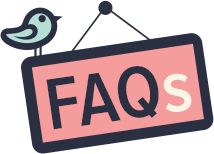 QUICKLY FIND OUT IF WE’VE ALREADY ADDRESSED YOUR QUERY.
QUICKLY FIND OUT IF WE’VE ALREADY ADDRESSED YOUR QUERY. 
If you type my name into the search engines, there are quite a few results in there that correspond to me. Most important of them all, however, are the ones that lead right back to Widener University in Pennsylvania where I was trained.

The training required to become a sexologist, (educator, counselor, therapist or coach) is extensive because it is both experiential and theoretical. In addition to a thorough grounding in the science of sexology and the modality they choose, students experience the teachings directly and how they apply to their own lives.
The information about accredited institutions that train sexologists are easily accessible online. You can easily verify institutions and credentials on websites like the following:
http://www.aasect.org
http://worldassociationofsexcoaches.org
http://www.worldsexology.org
http://www.europeansexology.com

The main difference is the intention of the two modalities. Sex therapy is based on the medical model that identifies what is not working (a pathology) and works to fix it (with a course of treatment). Similar to a general therapist, a sex therapist has the authority to diagnose a disorder and prescribe treatment. It focuses on exploring the past and processing deep emotions, and time is spent exploring the ‘why’ questions of your life – why you feel and behave as you do.
Sex coaching on the other hand, is a professional style, which blends the best of sexology (“the what”) with life coaching (“the how”). Think of it as part psycho-sexual education and counseling, combined with action-oriented and motivational plans. Sex coaching acknowledges your unique history as a part of the context of your life, but focuses instead on where you want to be, and then helps you design an action plan to get there. Sex coaching is usually short term – results can often be achieved quickly, and focus is maintained on moving forward towards goals.

The short answer is yes. Remember though, that although coaching is very therapeutic, it is not therapy. Sex coaches recognise the value of therapy and other modalities in working with human sexuality and so a client may first need to treat with the mental health aspect of the trauma. As a sex coach, I recognise when a person first needs to be referred to a mental health professional (psychologist, social worker, psychiatrist, etc.) and then after this treatment, I can work on the sexuality aspect of the healing.

Absolutely! I especially work with clients who simply want to enhance their experience or want to explore their full pleasure potential. With a sex coach, you can learn how to have better sex than you ever expected…at any age!

The first visit begins with a goals assessment session. This allows me as your sex coach to design a course of action to ensure that you achieve your goals. In addition to talk, we may discuss or participate in exercises and activities that help with your healing.
By the way, if you’re concerned, there’s no nudity or inappropriate touching in the sessions.

Although there will be faster results if both partners seek coaching, one partner can make a difference in the relationship. Even with helping a couple, only some sessions are done with both present, since individual sessions are key to coaching couples successfully.
One partner’s growth and change can have a significant impact or influence on the relationship, as the other partner may begin to respond in a positive way.

I have been trained at Dr Patti Britton’s institution, Sex Coach University, which is considered the gold standard in sex coach training. I use her approach and model, called the MEBES model, when working as a sex coach. MEBES addresses sexuality from the following aspects:
Mind (e.g. mental reframing, thoughts, knowledge)
Emotions (e.g. feelings you express or repress)
Body (e.g. knowing your body functions/dysfunctions, body image, sexual patterns)
Energy (e.g. understanding your energy patterns and the containment or build up of energy)
Spiritual (e.g. understanding sacred sexuality, knowing the essence of self)